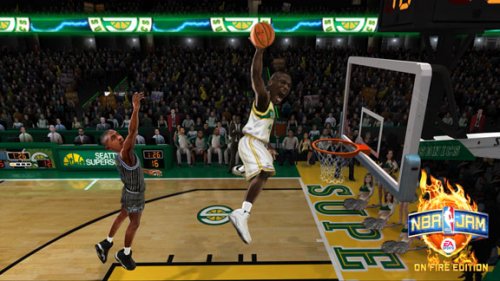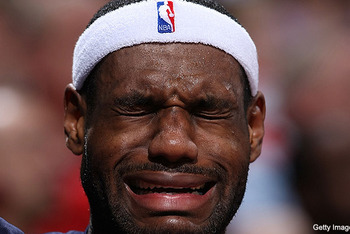In lieu of the previous story about Spencer Haywood and his Hall of Fame
bona fides, here's a Keltner List for Jack Sikma.
1. Was he ever regarded as the best player in basketball? Did anybody, while he was active, ever suggest that he was the best player in basketball? Only once in his long career did Sikma get any first-place votes for MVP (4 votes in 1978-79) and that had likely as much to do with his team’s spectacular season as it did to his play, so I think it is safe to say that he was never really considered the best player in the league. Considering that in his best season statistically (1981-82) he finished ninth in the voting, it is utterly realistic to answer NO to both questions.
 2. Was he the best player on his team?
2. Was he the best player on his team? YES. Sikma led the Sonics in win shares seven of the nine seasons he spent there, and twice in Milwaukee.
3. Was he the best player in basketball at his position? NO. Sikma had the misfortune of being a center alongside Moses, Kareem, and Hakeem, so even in his very best season (1981-82) he was second fiddle to Malone.
4. Did he have an impact on a number of NBA Finals or Conference Finals? YES. Sikma was a crucial piece of the Sonics’ back-to-back appearances in the Finals, and their three straight appearances in the Western Conference Finals. Further, he led the bucks to within a game of defeating the mighty Celtics in the Eastern Conference Semifinals in 1986-87.
5. Was he good enough that he could play regularly after passing his prime? YES. In his final season, at age 35, Sikma started 44 games for a Milwaukee team that finished 48-34 and served as the team’s sixth man in a first-round playoff loss to Philadelphia.
6. Is he the very best (eligible) basketball player in history who is not in the Hall of Fame? NO. According to Basketball Reference, Sikma ranks 4th in Hall of Fame probability among those eligible for the Hall who have not been selected, trailing Jo-Jo White, Willie Naulls, and Chet Walker. He is essentially tied with Mitch Richmond and Bob Dandridge.
7. Are most players who have comparable statistics in the Hall of Fame? YES and NO. Wes Unseld, Bob Lanier, Pat Ewing, Robert Parish are among those with comparable statistics to Sikma, although his field goal percentage is significantly lower due to his proclivity for outside jumpers (his TS% - true shooting percentage – is more in line with the enshrinees). However, Sikma is also alongside players such as Kevin Willis and Otis Thorpe; certainly great players, but not Hall of Famers.
8. Do the player’s numbers meet Hall of Fame standards? YES. There are 16 players in NBA history with 17,000 points and 10,000 rebounds and Sikma, Willis, and Thorpe are the only eligible candidates not currently in the Hall.
9. Is there any evidence to suggest that the player was significantly better or worse than is suggested by his basic statistics? YES. As mentioned earlier, Sikma’s shooting percentage was always lower than most superstar centers, but his ability to hit 3’s, knock down free throws, and rebound like a maniac were underappreciated during his career. Want to hear something amazing? With a career 24.8 defensive rebounding percentage, Sikma ranks higher than Wes Unseld, Patrick Ewing, and Nate Thurmond, and his offensive rebounding percentage of 7.6 is almost equal to Karl Malone, Kareem Abdul-Jabbar, and Ewing. Many basketball followers allowed themselves to be fooled by the afro and skin color, but Sikma was more than just a guy who hit outside jumpers. He twice led the league in defensive win shares and topped the NBA with a 28.0 DRB in 1981-82. Finally, since the merger, Sikma is the only center to lead the league in free throw percentage.
10. Is he the best player at his position who is eligible for the Hall of Fame? YES. I can’t think of another center more deserving than Sikma right now.
11. How many MVP-type seasons did he have? Did he ever win an MVP award? If not, how many times was he close? NONE and NO. Sikma received some consideration in 1978-79, but that was his high-water mark.
 12. How many All-Star-type seasons did he have? How many All-Star games did he play in? Did most of the players who played in this many All-Star games go into the Hall of Fame?
12. How many All-Star-type seasons did he have? How many All-Star games did he play in? Did most of the players who played in this many All-Star games go into the Hall of Fame? Sikma participated in seven consecutive All-Star games from 1979 to 1985. He deserved consideration for a couple seasons in Milwaukee, but none that qualified as ridiculous oversights. However, almost every player with seven All-Star appearances is in the Hall of Fame (Chet Walker and Jo-Jo White join Sikma as eligible non-enshrinees).
13. If this man were the best player on his team, would it be likely that the team could win an NBA title? YES. Sikma led the 1978-79 Sonics in win shares and they won the title. Enough said?
14. What impact did the player have on basketball history? Was he responsible for any rule changes? Did he introduce any new equipment? Did he change the game in any way? Was his college and/or international career especially noteworthy? Not much to see here. Sikma certainly got some notice for being such a productive outside shooter as a big man, paving the way for others to do the same, but it’s not as if the NBA was inundated with 6’11” 3-point shooters after he retired. His college career was spent in the anonymity of Illinois Wesleyan and he had no international experience of which I am aware. More than anything, Sikma is remembered for
his distinctive hairstyles.
Verdict? Sikma clearly ranks on the fringe of NBA Hall of Famers. Had he spent his career in Boston or New York, it’s rather obvious he’d be in the Hall already as there are plenty of statistically inferior examples who don’t have to pay to get into Springfield.
However, Sikma spent his career in Seattle and Milwaukee, which is great if you’re interested in cheese, lattes, or beer, but not so great if you’re interested in grabbing national headlines. As an overlooked member of an overlooked championship team, Sikma’s achievements never registered the attention he deserved.
Enough blathering, you say: Does Jack Sikma deserve to be inducted into the Hall of Fame? My answer? Yes.
















